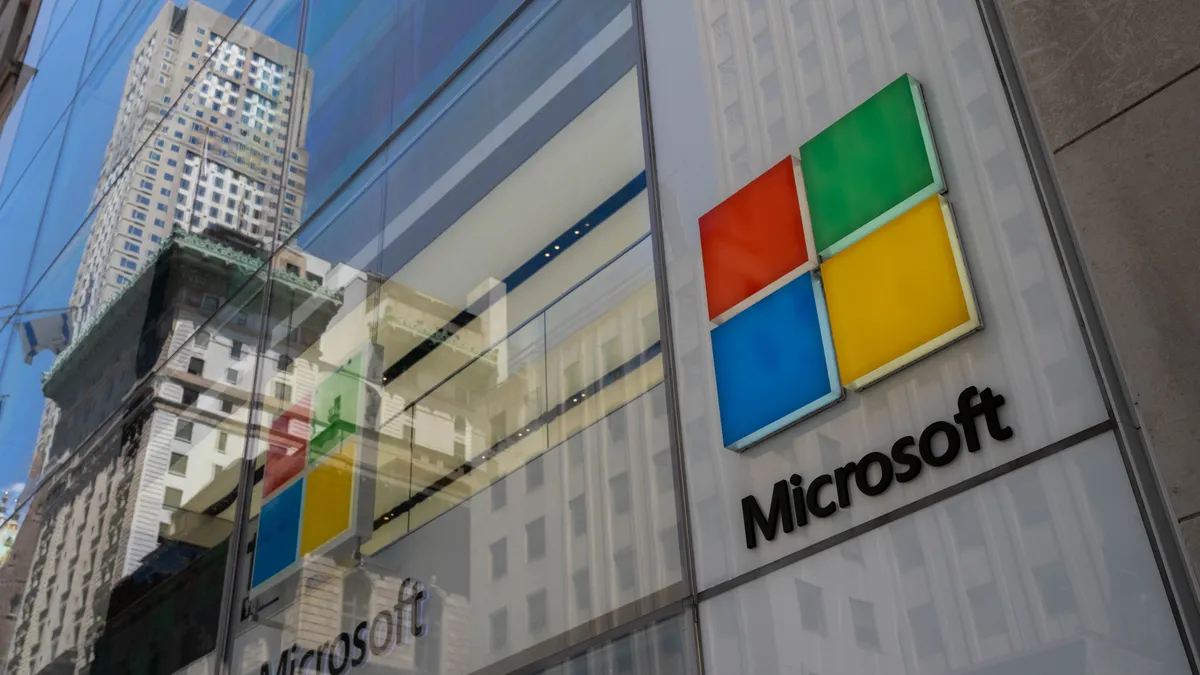Dive Brief:
- Microsoft appointed former General Electric CFO Carolina Dybeck Happe to serve as its EVP and Chief Operating Officer, the technology company announced Thursday in a blog post, filling a position which has reportedly stood vacant for the past eight years. Happe has started in the role, Microsoft confirmed to CFO Dive via email.
- As COO, Happe will help the Redmond, Washington-based company improve its business practices and “accelerate our company-wide AI transformation,” CEO and Chairman Satya Nadella said in the blog post.
- Microsoft will lean on Happe’s expertise as a transformation leader as it continues its bid to be at the forefront of the emerging AI industry. Microsoft has remained an industry leader “because — time and time again when tech paradigms have shifted — we have seized the opportunity to reinvent ourselves,” Nadella wrote Thursday. “And that’s what we are doing again today in this AI platform shift.”
Dive Insight:
Happe’s appointment “comes at just the right time” for Microsoft as it looks to position itself as an AI leader, Shawn Cole, president of boutique executive search firm Cowen Partners told CFO Dive.
“With the company pushing forward in areas like AI and business process improvement, having someone with her expertise in best practices and change management is crucial,” Cole told CFO Dive via email.
Happe took the CFO role for GE in March 2020, stepping down last September but continuing with the company as its SVP of finance, according to her LinkedIn profile. During her time with the company, she “architected and executed” a company-wide restructuring and turnaround plan at the company, including reducing more than $100 billion in debt, according to her LinkedIn page.
Prior to GE, she served as the finance chief for companies including Maersk and ASSA ABLOY Group, where she was responsible for FP&A, tax, investor relations and internal audit.
The GE alum will be the first to take on Microsoft’s COO reins since the departure of previous COO Kevin Turner in 2016, according to a report by The Seattle Times. Turner, a long-time Microsoft employee, left to take the CEO role at Citadel Securities, The Seattle Times reported at the time.
Rather than finding a successor for Turner, Microsoft dispersed his previous responsibilities as COO across newly-created groups and among executives including CFO Amy Hood, according to a 2016 email by CEO Nadella regarding the change.
The move to place Happe in the COO seat eight years later represents another large-scale organizational shift for the software provider, which is “simply too large and complex to leave a role like COO vacant for so long,” Cole said.
“Bringing in someone from outside with a proven track record — like her turnaround at GE — signals that the company recognizes the need for change,” Cole said. The appointment “is not just about filling a role; it’s about strategic leadership, and Microsoft made a great hire,” he said.
Happe’s appointment as CFO comes as Microsoft continues its AI bets, having swiftly become one of GenAI’s largest backers — funneling more than $10 billion into ChatGPT developer OpenAI.
Revenue for Microsoft’s Intelligent Cloud segment, which includes its AI-powered Azure Cloud service, grew 19% from the prior year period to hit $28.5 billion for its most recent quarter, according to its earnings results. Capital expenditures for the quarter hit $19 billion, with cloud and AI spending representing nearly all of expenditures, Hood said, according to a report by Industry Dive sister publication CIO Dive.
However, both scrutiny and competition surrounding Microsoft’s AI efforts have increased over the past few years, coming as investors weigh the significant current costs of AI’s development with a nebulous — though potentially large — future return. Climbing costs, without a correspondingly high jump in revenue, have led many to wonder if AI spending will outpace gains, according to a July report by Axios.












